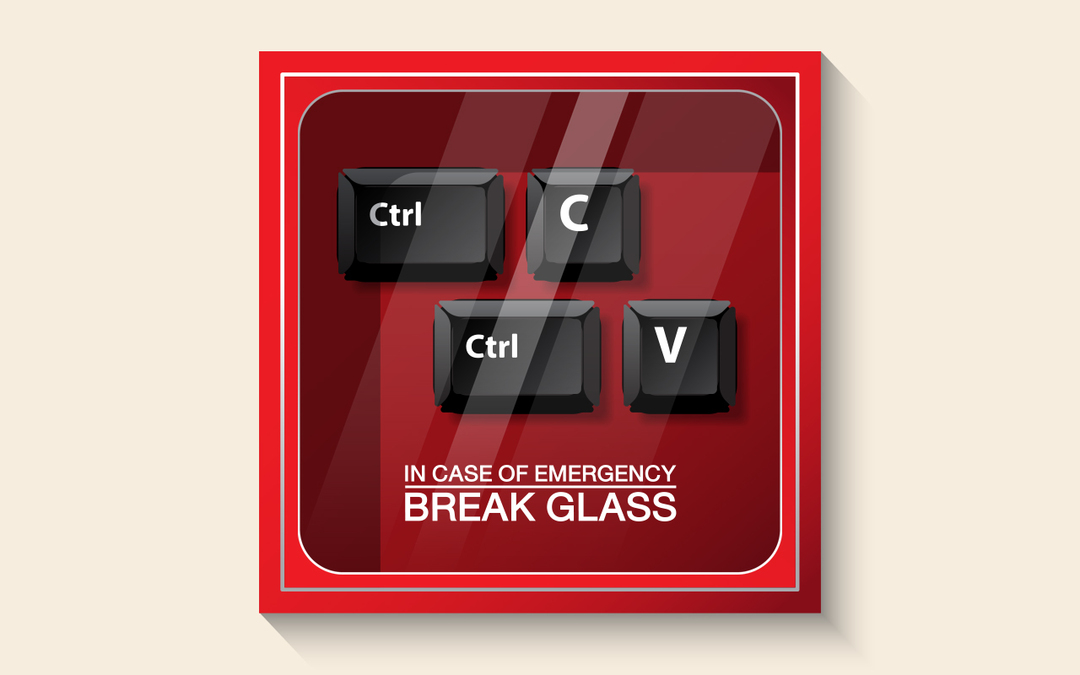
Crisis Communications for small organisations
Nobody expects the Spanish inquisition: Preparing for the unexpected. Crisis Communications for small organisations
I’ll admit it: I’m a bit weird. In a number of ways but particularly in that crisis communications is one of my favourite areas of PR. I mean, obviously, it’s horrible when something awful happens and I’ve hated to see any organisations I’ve worked for or with going through difficult times but what I do love is preparing for a crisis. It seems I’m in a minority though and many people don’t enjoy this?! The hard fact is that every organisation needs to do it. Because you do not want to be facing a crisis unprepared. Figuring out who you need to contact, who will be affected, what you should be telling customers and the wider world, and how to keep parts of the organisation that absolutely cannot shut down going is not what you want to be figuring out while dealing with emergency services. But fear not, bury your head in the sand no longer because here is your guide to preparing for the unexpected. We’ve even put together a free resource you can use to get planning.
Getting started
It is more than understandable if you do dread thinking about a crisis and how your organisation would cope. But let’s start by getting the hardest part out of the way first. What is the worst thing that could happen? Yes, we need to go to that dark place and think about all the truly awful things that could happen. I mean death, destruction, dismembering the whole shebang. Don’t hold back. Remember if you don’t plan for it you can’t protect against it. But also, don’t forget the small things like lost keys, laptops and phones, sickness, and even road work. Anything that could cause your organisation to have to stop normal activities for any extended period of time or could give your customers or stakeholders a reason to take to social media to complain.
Once you have your list, try to group some of the scenarios. For example, your organisation may have these groups: premises issues (no electricity, water leak, lost keys, etc), staff issues (sickness, lateness, legal issues, complaints against them, etc), customer issues (contagious sickness outbreak, injury, death, complaints, etc).
Now going through your list and rate what would be awful and what would be inconvenient. For the majority of the inconvenience, you will be able to deal with these on a day to day basis. But it’s still worth having a plan for these. This crisis comms plan will help with that but make sure you have a business continuity plan in place. If you want help or advice in creating this please contact us, we can help or put you in touch with organisations who can help you devise and test your plan.
Preparing for the unexpected
The next thing to do is think about what you would do in these scenarios. Who will be affected? Who would you need to contact? Do you have their contact details? How will you keep everyone affected safe and what provisions for their welfare do you have? How will you contact those who are affected? Remember at this point you may not have all your usual equipment and colleagues etc. What are the critical parts of your organisation that must keep going and how do you prepare for that? What members of staff from non-critical areas of the organisation can be redeployed or drafted elsewhere to help? Or if you are a very small organisation, who could you ask to support you?
What will you say?
Now you know whom you need to contact you need to know what to say to them. We Are Comma can help with drafting some basic messages which can be tailored to the situation when a crisis occurs. At this point, though you need to bring your AA game – acknowledge the disruption or issue, apologise for any inconvenience, reassure that you’re working to fix things, and will give updates as soon as you can. Do not give too much detail. Do not speculate. Be sensitive and take control. As with all messaging think about things from the audience’s point of view. Yes, something may be an absolute disaster for you but it may not have a huge impact on your customers. Don’t downplay anything either. I admit it’s difficult to get the right balance and it does take years of experience to get messages out sensitively in a way that creates the impact you want and doesn’t have unintended consequences. My advice is to have a comms person on your emergency contact list. Even if they don’t work directly for you, just having someone you trust who can sense check what you intend to send out is very worthwhile.
Springing into action
Then have a plan for getting the message out. Make sure you can access your social media channels, that you can update your website, and be able to get to your email marketing systems. Think about images and not just words at this point. For example, a company that has to make redundancies and lets the world know about it with a photo of the chief executive smiling is asking for negative media coverage. Likewise, when organisations have to announce sad or difficult news, they may choose to change their logo to a black and white version and tone down their cheery brand. Remember not all crises will need these things but they are things to think about and have in place, just in case.
Getting the message out well can be a great thing for a brand, even if the news they are getting out is awful. If you can show you are taking control and learning from mistakes and moving on. You can even grow trust in your organisation, so don’t only view situations like this as a negative but potentially an opportunity to show the very best side of your people and who you are.
Preparing for the worst
Now think about all the negative things people – particularly journalists – could say about your organisation and operations as a result of the situations you brainstormed. Safeguarding, checks, security, planning, and every area of your organisation could be under the spotlight. It goes without saying your organisation needs to have all these contingencies in place and up to date etc. But you need to spend time thinking about what negative or difficult to answer questions you might face. Questions like “Why did this happen?” “Aren’t you supposed to be making sure X is safe?” “How can people ever trust your organisation again?”. These are not easy to face but are an important part of planning. Again, having a trusted, yet critical friend can be really helpful.
Review and revise
At this point, you should be starting to feel empowered and able to take on any issue life throws at your organisation. But that’s not the end. Make sure you have all of this safely stored but accessible by the relevant people in your organisation. But don’t let it gather dust. Regularly (once a year or when you change operations, areas of work, etc) get the plan out and go through it again. What’s changed? What needs to be updated? Depending on the size of your organisation, it may even be worth testing the plan. We Are Comma can help you with that.
Keep calm and carry on
If you do experience a crisis then you will be glad you put so much time into planning while you are dealing with trying to keep your organisation going. At that point, you’ll also have to look at other ‘moving parts’ for example how something relatively minor can become a national news story because it fits in with other topical issues of the day. And don’t forget once the crisis has passed and you’re in the recovery stage to debrief, review and evaluate.
See, that wasn’t so painful, was it? In fact, it may even have taken a load off your shoulders that you didn’t know was there.
So tell us, how many crisis scenarios have you come up with?
You can find out about We Are Comma, who we are, and the services that we offer on the website. Or to start a conversation you can email hello@wearecomma.com or use the contact form.
Pics courtesy of Adobe Stock and Motion Array.

